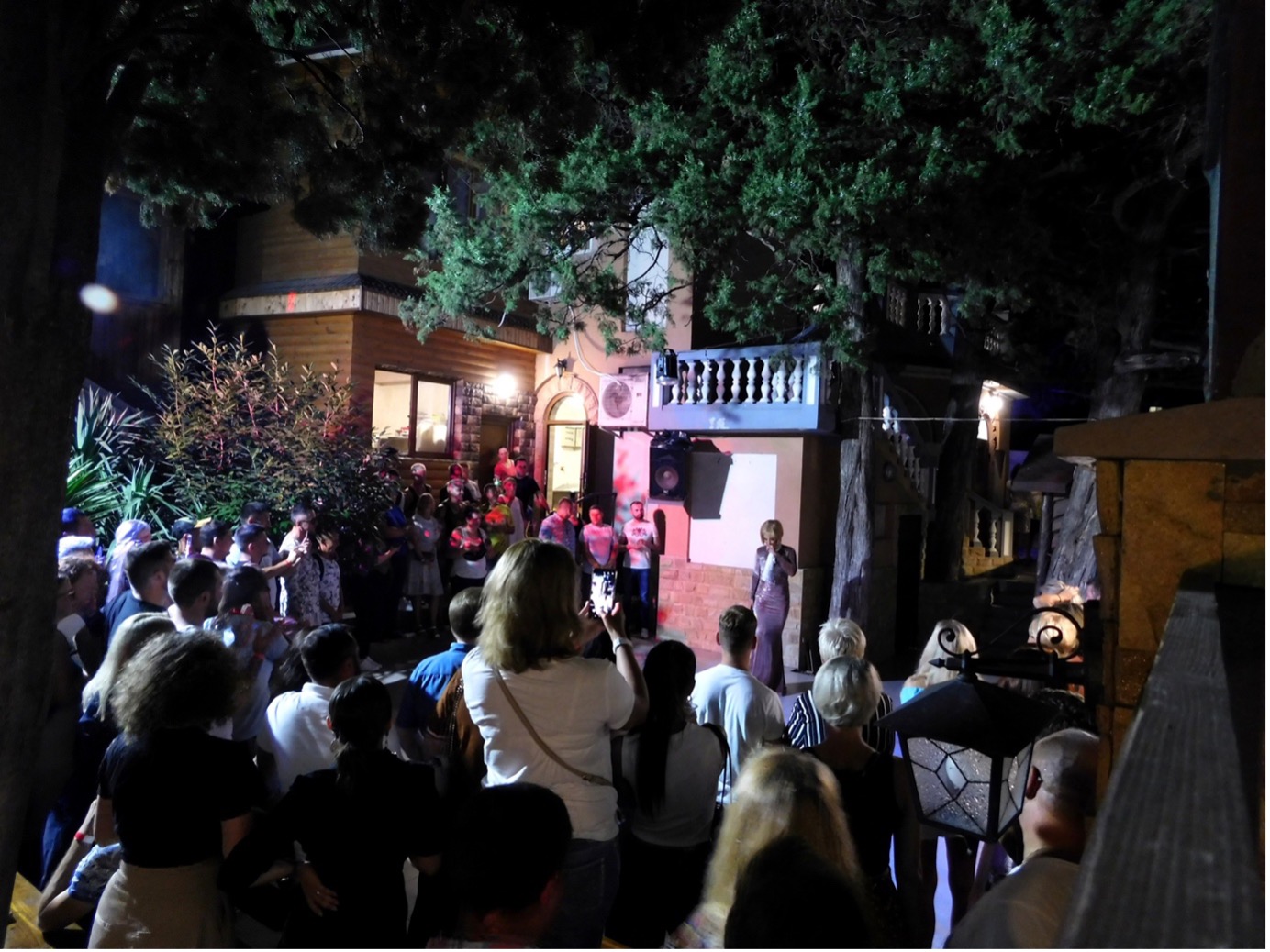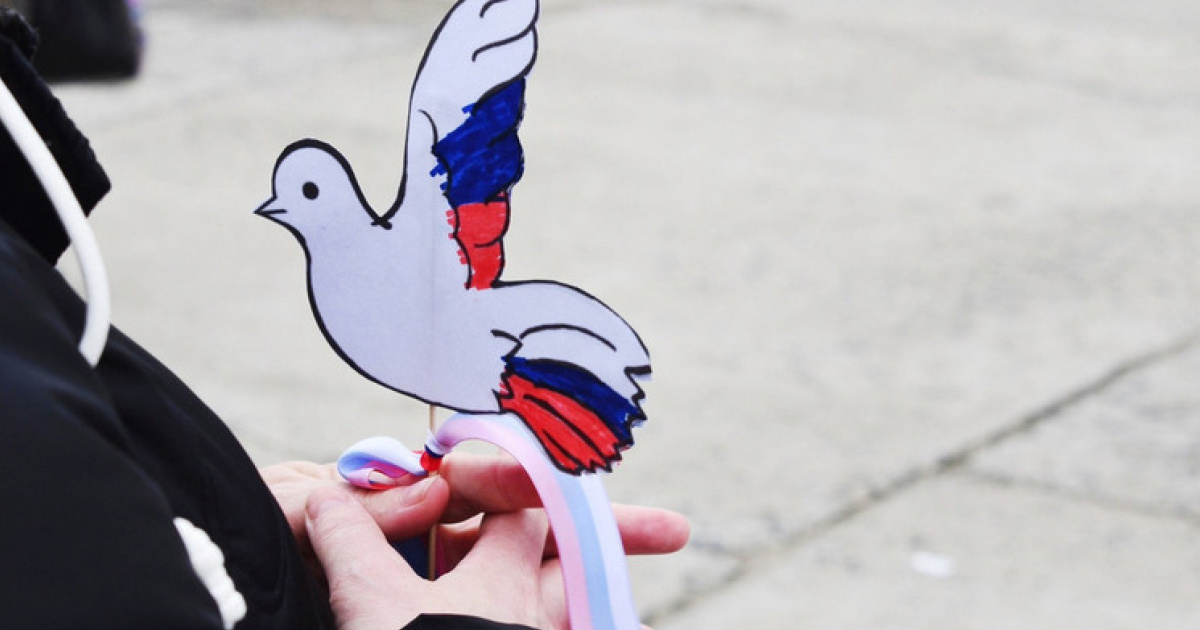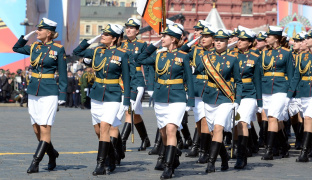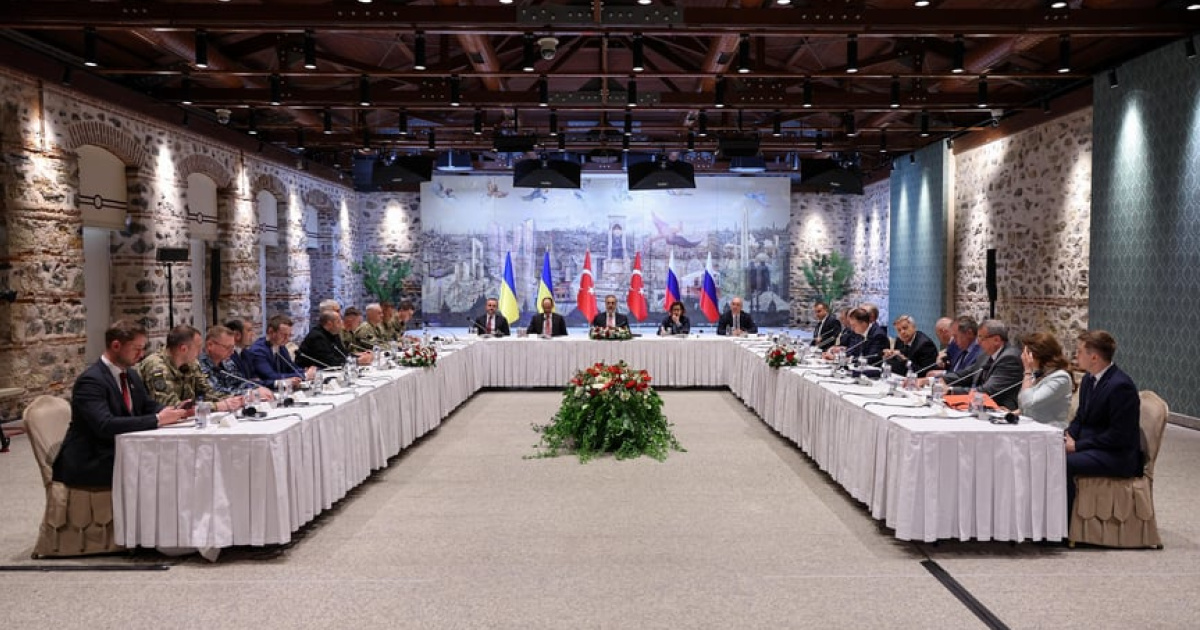"We're doing fine", - assures Mikhail, a representative of the LGBTQ+ community in Crimea, speaking to OstroV. "No one bothers us, and we're not demanding anything or causing any trouble. Dating websites are still functioning, they are not being blocked. Simeiz, to some extent, still exists. Secret meetings and parties are also happening without any troubles. Yes, we don't see couples holding hands, there are no gay clubs, and Pride events and other gatherings are not taking place. There are legislative restrictions being imposed, but it's tolerable for now. However, we do notice that LGBTQ+ life in moscow or St. Petersburg is much more diverse, and people there feel somewhat freer. But that's beyond our control. Those who wanted to leave, have already done so, and the rest of us are more or less content".
While activists in Ukraine fight for LGBTQ+ rights, organize cultural events and actively discuss the legalization of civil partnerships for same-sex couples, representatives of the LGBTQ+ community in occupied Crimea are relieved that they are "not being bothered" for now.
The renowned gay resort of Simeiz, which had been considered an LGBTQ+ tourism haven for decades, has long transformed into an ordinary Crimean village. The few LGBTQ+ friendly establishments in Sevastopol, Simferopol and Yalta ceased operations after the annexation. The iconic café Yezhi in Simeiz is the only remaining spot where LGBTQ+ individuals still gather for nighttime leisure.
"However, while in the past, drag shows at Yezhi were grand events attracting the best drag queens from the CIS countries, today it's just a show by a local artist. Moscow's top performers used to consider it an honor to perform in Simeiz, but now hardly anyone comes here. And this year, there's no one at all. Not to mention that before 2014, we often had celebrities like Alexey Panin, Shura and Boris Moiseev visiting here", - Crimean local Mikhail shared with OstroV.
OstroV explored the life of the Crimean gay resort after the full-scale invasion and how the lives of LGBTQ+ individuals on the peninsula have changed during this time.
Laws that go unnoticed
Following trends in russia, the occupying authorities do not overlook the topic of LGBTQ+. The so-called "Deputy Prime Minister of Crimea and Minister of Internal Policy, Information, and Communication", Dmitry Polonsky, categorically rejected the idea of holding LGBTQ+ events on the peninsula.
"We can recommend those people to go to the free GayEurope, and let them freely walk the streets of the capitals of European states where there is complete tolerance. There's no need to come to our heroic land and walk around here with rainbow ribbons", - he stated.
As soon as the Crimean peninsula was annexed, it automatically became part of the russian legal field. Consequently, homophobic norms enshrined in the russian legislation automatically apply to Crimea.
In particular, at the end of 2022, a package of bills was adopted in russia, containing a complete ban on the "propaganda of non-traditional sexual relationships". These amendments to the legislation aim to expand the scope of the law banning the "propaganda of non-traditional sexual relationships among minors", which was adopted by the State Duma in 2013.
The new amendments now prohibit the "propaganda of non-traditional sexual relationships" among adult citizens of russia.
Furthermore, the new provisions prohibit the "propaganda" of LGBTQ+ content in any products sold in russia, including films, books, advertisements, media materials and audiovisual services. The approved bill not only prohibits "propaganda" but also the demonstration of "non-traditional sexual relationships and preferences" in advertising and materials accessible to children.
The punishment for violating the ban on "LGBTQ+ propaganda" has become even stricter compared to the existing law of 2013. Individuals now face fines of up to 400,000 rubles, and for disseminating information about same-sex relationships among children, fines of up to 200,000 rubles are imposed.
Amendments to the Code of Administrative Offenses of the russian federation provide for fines of up to 400,000 rubles for individuals, up to 800,000 rubles for officials, and up to 5 million rubles for legal entities for the "propaganda of non-traditional sexual relationships, preferences, and gender transition among people of all ages". Foreigners also face the risk of deportation from the country.
But russia didn't stop there. In June 2023, the State Duma passed in the first reading a bill banning gender-affirming surgeries, completely eliminating the possibility of transgender transition through surgical procedures (except for cases involving the treatment of congenital physiological anomalies in children). Additionally, the registry offices will be prohibited from making changes to any documents based on medical certificates of gender transition.
Russian human rights activists criticized the bill, believing that it would lead to an increase in mental disorders and suicides, as well as the emergence of a black market for underground medical services.
The russian dictator himself decided to pour fuel on the fire. In June 2023, putin instructed the creation of an institute for the study of the behavior of LGBTQ+ individuals based on a federal psychiatric center.

According to the Minister of Health of the russian federation, "there is a presidential directive to create an additional institute at our federal psychiatric center to study not only these, but also a range of behavioral directions, including social behavior". He stated that "this direction will also be further subjected to mandatory scientific research".
According to russian media reports, this statement may indicate russia's intention to implement forcible conversion therapy - a combination of pseudoscientific and coercive psychological and physical practices that purportedly aim to "cure" non-heterosexual orientation. Such methods are considered torture by the United Nations.
Representatives of the LGBTQ+ community living in the occupied peninsula have mixed opinions about these initiatives.
"We will continue to live as we did, in the underground. In fact, nothing will change. No one prohibits going on dates, no one visits apartments, and gays are not identified and reported to the police. But if we talk about criminal liability for the mere fact of homosexuality, then that would be a signal that it's time to leave. Well, let's be honest with ourselves, even during Ukrainian government, there was no widespread tolerance here. Yes, there were more LGBTQ+ establishments and overall more people with non-traditional orientations, but no one was putting themselves on display", - Sergey, a local resident, told OstroV.
"There are fewer gays in Crimea, that's obvious. They haven't been killed, no, but many of my acquaintances moved to moscow, St. Petersburg, Sochi, and other major russian cities where LGBTQ+ life is more relaxed and open. It's the same country, but for some reason, moscow can openly have 10 gay clubs, saunas, and other venues, St. Petersburg has 5 major clubs, and there are several in Sochi and so on, but in Crimea, there's nothing. Moreover, many have stopped posting their profiles with photos on dating websites, they fear some sort of reprisals. They use fake photos and hide their identity. It's been like this for eight years", - noted Mikhail, an LGBTQ+ representative living in Sevastopol.
These statements are confirmed by the Regional Human Rights Center. According to their information, at the time of the temporary occupation of the peninsula, there were at least 16,200 representatives of the LGBTQ+ community and about a hundred transgender individuals in Crimea. The human rights organization estimates that several thousand LGBTQ+ individuals have moved, particularly to moscow and St. Petersburg, where russia's policies are less repressive towards such individuals.
"Simeiz is no longer the same gay capital"
"Sevastopol is loved by sailors. Koktebel attracts writers. Yalta is for the wealthy. Chornomorske is for the less affluent. Simeiz, on the other hand, rightfully bears the title of the best domestic gay resort. This village has long been known for its liberal ways. They say that in the 1950s, the beach next to the Swan Wing Rock attracted nudists from all over the Soviet Union. No punitive raids by law enforcement and morality guards could do anything about provocatively naked Soviet citizens... The fame of Simeiz quickly spread around the world, and now you can meet gays and lesbians from moscow and St. Petersburg, America and the Netherlands, Germany and Poland, Norway and England here", - wrote the local press about Simeiz 20 years ago.
Simeiz, a small resort town on the coast of Crimea, has been considered the largest LGBTQ+ resort in the CIS for decades. Beautiful landscapes, warm climate, tolerant local residents and themed establishments attracted LGBTQ+ individuals from russia, Ukraine, Belarus, and countries near and far every summer. During the day, they would go to the nudist beach and spend the evening and night at the famous café Yezhi, where they could dance until dawn.
Locals had long become accustomed to these unusual tourists, and homophobia was unheard of there. A couple of guys walking hand in hand in the evening usually did not elicit any negative reactions.
"Simeiz is a phenomenon of LGBTQ+ life in the post-Soviet space. On the one hand, Crimea has always been considered a homophobic place where no gay clubs operated. On the other hand, in Simeiz, you felt freer than in Kyiv or moscow, where LGBTQ+ life always thrived. During the day, it was a typical Crimean resort with families, beach activities, honey baklava, and draught beer on the beach. But after sunset, the city underwent a radical transformation. LGBTQ+ representatives from russia, Ukraine, Belarus, Kazakhstan, Armenia, and so on would put on their finest attire and take to the promenade. It would start with a dinner with a glass of wine in the numerous local restaurants, where you couldn't book a table for the evening due to the excitement. And after midnight, it was all about dancing at Yezhi, where it was impossible to squeeze in during the summer. But all that was before 2014", - recalls Vladislav, a local resident of Crimea who regularly visited Simeiz during the summer.

Café Yezhi
He remembers that during their stay in the village, they could meet and interact with people of various professions, social statuses and political views.
"People who rented a cheaper room and drank inexpensive beer would come, as well as those who only consumed French champagne and rented expensive villas nearby. These people could afford a trip to Barcelona or Cannes, but a trip to Simeiz was like a nostalgic experience for them. That's why the region's economy thrived thanks to LGBTQ+ tourists", - he noted.
After the annexation of the Crimean Peninsula, everything changed. The decrease in tourist flow, transport blockade, sanctions, international isolation and russian homophobic legislation have turned the once super popular resort into an ordinary Crimean settlement.
Of course, it cannot be said that the tourist flow has completely disappeared. As locals note, during the first two years after the annexation, Simeiz mostly welcomed Crimean residents who came there to relax for the weekend.
"Rarely, people would come from Kyiv and moscow, but there were some. Back then, there wasn't such strong enmity, and some people would visit due to nostalgia. It was economically challenging, but we managed. We started raising prices for accommodation and other services. There was a decline, but it was tolerable. Then, for three years, everything stabilized, and a steady flow of tourists emerged. It wasn't as massive as before 2014, but it was stable enough. The increased prices for housing and tourist services covered it to some extent, but there were no windfall profits. More families with children started coming, and they usually looked for budget-friendly vacation options", - recalls Maria K., a local resident who rents out several rooms in Simeiz.
Difficult times came after the pandemic was declared, she says. To attract tourists even a little bit, it was necessary to significantly reduce prices for accommodation and operate at practically a loss. It is worth remembering that many people in Crimea, like Maria, live off the money they earn during the summer season for the entire year.
According to a local resident Andrey, after the full-scale invasion by russia, Simeiz practically stopped to be known as an LGBT resort.
"Crimean residents still come here. Not out of a great love for Simeiz and Yezhi, but because there is simply nothing else in other cities. But it's far from the crowds of tourists who used to spend a lot of money here. These are all modest and budget travelers. People from major russian cities don't come here anymore — planes don't fly, there are checks on the bridge, drones and explosions, possible mobilization and so on. All of this finally killed Simeiz as a gay resort, turning it into an ordinary tourist settlement", - he said.
As for its main LGBT establishment, the Yezhi café, this year's season started exceptionally late on June 8, 2023. OstroV’s journalist contacted the café to find out how it would operate during the summer.
"The club is open 24/7. The lineup for the show program is still being formed, so there is no exact schedule yet. We are currently operating without drag shows. There is no news yet about artists from moscow and St. Petersburg. Please follow our announcements", - they replied.
We also spoke with Yezhi’s former waiter, who informed us that this year, according to his information, the café has hired a record-low number of staff.
"This indicates expectations of a less busy season. Previously, there used to be up to 10 waiters working the night shift due to the high demand. However, this year they have reduced it to 6. It seems like there are patrons, but it's no longer the numerous and lively parties that used to go on until morning. Nowadays, it's more of a family café during the day and evening. At night, perhaps a couple of dozen people still come due to old memories. Yezhi somehow managed to survive last year, but in terms of the number of patrons, especially in the second half of the summer, there was a huge decline. My colleagues have rather gloomy expectations for this year. Currently, the seasonal service industry is more focused on major resorts in Crimea (Yalta, Sevastopol) or mainland destinations (Sochi, Gelendzhik)", - he explained.
In general, following the tourist Crimea, russia has also killed free Crimea. Freedom and tourism are money, which Crimean residents have lost...
By Andriy Andrieyev, OstroV




